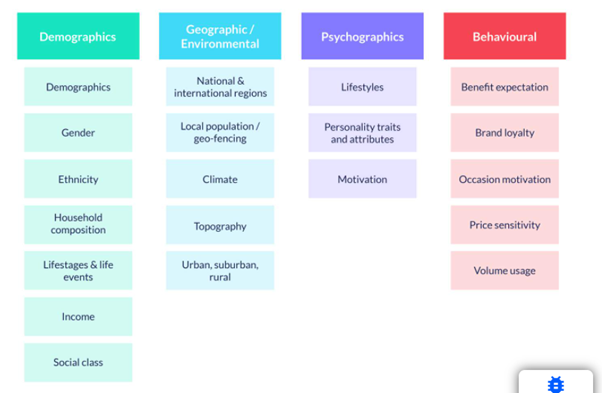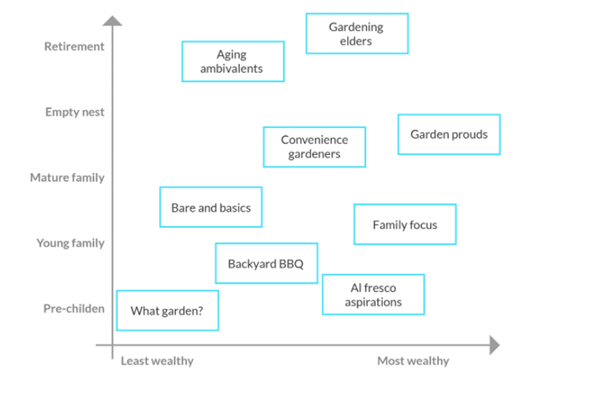Who do you target with your business? Is it the entire market or a segment of it? How do you define your customers, what you know about them, and how does this inform your strategy?
Ask yourself, which of the following is true for your organisation?
- You target your audience as one segment
- You have clearly defined audience segments
- You are just starting out and are not sure who you are targeting
- You just make products, and they sell
We would love to know which is nearest to the truth for your organisation, tell us via our anonymous twitter poll.
Your customers and prospects are likely to also be the target of other organisations, either for the same or similar products that could be used as a substitute for your offering. Therefore, it is important for organisations to understand the wider marketplace, how customers behave, how they segment around behaviour and preferences, to ensure that you can continue to meet consumer needs.
You may have different terms for your customers. Maybe you prefer to call them members, stakeholders, patients, voters, beneficiaries or donors. They may also include the press and media contacts. Don’t forget, your employees and colleagues can also be the ‘customer’ base for internal communications and process innovation.
Whatever role and relationship you have with the people, the principles of research and understanding are the same.
Some markets are very broad in their appeal and are referred to as mass-markets. However, there is often some form of natural segmentation that divides the behaviour of different customer groups.
Common segmentation variables include demographics, geography, psychographic, and behaviour.

In many areas, behaviour is the most accurate variable. For instance:
- Donors may give small one-off donations, set up a regular direct debit or leave a large legacy. Segmenting around this type of behaviour allows you to understand their motivations and manage the relationship better.
- Members of a gym may want to join with their family, or just use equipment in off-peak times. Some will want to socialise. Others may travel a lot and love the convenience of being able to use any of your national networks as they pass through a town.
Understanding the different ways people behave allows you to build more personal and meaningful relationships, but also provide insights that can help with new product development.
The first part of your customer analysis is therefore to identify who the market customers are and the most appropriate way of segmenting them.
We have provided an example here for a garden centre, the axis is focused on wealth and life cycle, as these are two of the key determining factors in this instance, but they could be many things. For example, their geographical location, whether they have children, how many different sports they play, their age, the types of house they live in, or how many times they have previously ‘purchased’ from you.
You’ll see from the chart that for the gardening industry the target market ranges from ‘What garden’ through to those who are proud of their garden. Others are interested in their garden as a place to have a BBQ or spend time with their family. It is quite clear to see from this example how you could tailor the marketing for these different segments to align with their attitudes towards their gardens.

Consider your products and services. Have a think about your customers and target market, how would you separate them?
If you would like to try out this exercise for your organisation complete our lesson Knowing your customers and prospects, we are offering this lesson for free here:
Knowing your customers and prospects - Edjet.com
If you have found this interesting or useful, have a look at our intelligent marketing diplomas, aimed at helping marketing managers and marketing leaders to build on their knowledge and become intelligent marketers:

